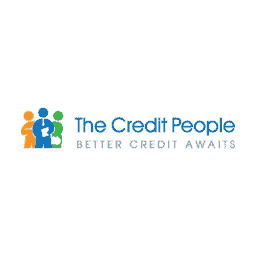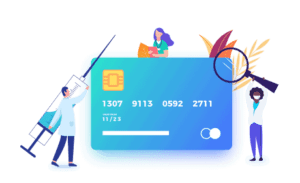Credit Reports and Scores: The Bare Necessities
Understanding the basics about credit reporting and scoring can help you avoid common (and sometimes costly) mistakes. We get into the gritty details elsewhere, but here are the basics you need to know:
- There are three nationwide credit bureaus: Equifax, Experian, and TransUnion are the three main nationwide credit bureaus in the U.S. These for-profit competitors collect, store, and organize information about millions of people. They then use this information to compile and sell credit reports. Credit reports are the basis for your credit scores, and many lenders will analyze your report along with reviewing your score.
- Your credit scores are based on your credit reports: A credit score is a snapshot-analysis of one of your credit reports. Creditors can purchase a score along with your report, and use the score to help them make lending decisions.
- There are many credit scores: You don’t have “a” credit score. FICO and VantageScore are the two largest credit scoring companies in the U.S., and they both make different credit scoring models. Think of scoring models as computer programs—there are different versions and they get updated every few years.
- Credit impacts more than debt: In most states, your underlying credit reports (but not your scores) can impact your insurance rates and employment opportunities. Credit can be important even if you never take out a loan.
Fortunately, you don’t need to know all the gritty details to have an excellent credit score.
Top Tips for Improving Your Credit
While there are many different types of credit scores, consumer credit scores used for lending purposes have the same goal—determine the likelihood that a person will be 90 or more days late on a payment within the next 24 months.
Because they have the same goal and are analyzing the same data, it may come as no surprise that similar factors can impact the various credit scores. While the small differences can be important, particularly right before you take out a large loan (such as a mortgage), here are the main ways you can improve your credit scores:
- Open accounts that are reported to the credit bureaus: Most major lenders and credit card issuers will report your accounts to all three bureaus, which is important because you’ll need to add information to your credit reports to build credit. But you don’t need debt. Using a credit card for a subscription and then paying off the bill in full each month can help you build credit without costing you any money.
- Pay your bills on time: A long history of on-time payments is one of the most important parts of building good credit. What some people won’t tell you, is that a bill needs to be 30 or more days past due until it can be reported late to the credit bureaus. You may be charged a fee if you miss a payment by a few days, but you still have a couple of weeks to bring your account current before your credit is hurt.
- Avoid credit card balances: The ratio of your reported credit card balances to your cards’ credit limits is another important scoring factor (called your utilization ratio or rate). If you have credit card debt, focus on paying it down or consolidating with an installment loan to lower your utilization rate. If you use your cards often and then pay in full, making early payments can lower your reported balance. Your utilization rate is one of the few scoring factors you may be able to quickly change to improve your scores.
These three basics are the foundation of building good credit, regardless of the specific credit scoring model. Learning about other scoring factors can help you manage your credit and understand why, for example, opening several credit cards isn’t a good idea if you’re about to apply for a mortgage.
Of course, life happens, and it’s not always possible to pay every bill on time or avoid credit card debt.
Solutions To Improve Your Credit
See here solutions that can help you improve your credit, such as credit score apps to track and monitor your credit score, credit repair companies or tools to access credit reports, or protect and insure you against identity theft.

This Lexington Law review will cover how the credit repair company can add points to your credit score and fix your credit report.

Safeport Law can help with debt relief and credit repair. This review covers the key details and benefits of their services.

Can The Credit People repair your credit score? This review will highlights key details you should know about their credit repair services.

Looking to build your credit? Read this review to learn how the Cheese Credit Builder offers a simple and effective solution.
Rebuilding and Repairing Your Credit
Most people don’t have perfect credit, and their credit gets hurt due to bad timing. Several unexpected expenses, a medical emergency, or you lose your job, and suddenly you have to pick and choose which bills to pay on time.
Fortunately, negative marks can’t stay in your credit report forever—most get removed within seven years. In the meantime, you can start rebuilding your credit using the same process of opening new accounts and making payments on time.
Although it’s more difficult to get approved for a new account when you have poor credit, many people start with secured credit cards and credit-builder loans. These are like stepping stones until you can qualify for better options.
You may have also heard of credit repair when you hire a company to review your credit reports and try to get negative items removed. You can dispute inaccurate information on your own for free, and credit bureaus don’t have to remove negative information that’s accurately reported. But working with a credit repair company can help as the company may know where to look for common discrepancies that can be the basis for filing a dispute.
Using Your Credit to Save and Make Money
Having good credit can help you save money by leading to lower-cost financing and lower rates on auto and home insurance policies. You may also be able to avoid having to pay security deposits when opening new accounts, and you won’t have a bad credit report blocking you from getting hired or promoted.
Once you have good to excellent credit, you can also use it to your advantage. Taking out a low-rate personal loan to consolidate higher-rate credit card debt is a popular way to lower monthly payments and save money on interest while paying off your debts. Refinancing large loans, such as a mortgage, can also lead to significant savings.
You may also be able to qualify for the best rewards credit cards and for loans with the most favorable rates. Some people even use low-risk arbitrage opportunities—such as borrowing money with a no-interest promotional offer and then using the funds to make money from a high-rate checking account.











